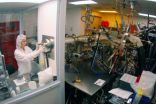(Press-News.org) The standard approach to re-treating tuberculosis (TB) in low and middle income settings is failing, according to research funded by the Wellcome Trust. In a study published today in the open access journal PLoS Medicine, researchers call for improved access to rapid diagnostics for drug resistant TB, second-line TB treatment and antiretroviral HIV therapy.
Each year, between one in ten and one in five patients treated for TB see their disease return after failing, interrupting or relapsing from treatment. This results in an estimated one million people in ninety countries being treated with an eight month long regimen of five drugs. The therapy has been in use for over three decades and is recommended by the World Health Organisation.
A study in Kampala, Uganda, of 140 HIV-infected patients and 148 HIV-uninfected patients found that the re-treatment TB regimen failed to work effectively in a significant proportion of patients – 26% of HIV-infected patients and 20% of HIV-uninfected patients. Nearly a quarter (23%) of patients died, whilst 6% saw their TB disease return. Fatalities were particularly high amongst HIV-infected patients.
"Our study suggests that the recommended therapy for re-treating TB is failing as many as one in four people with recurrent TB in the developing world," says Dr Edward Jones-López, first author of the study, Assistant Professor of Medicine at Boston University School of Medicine. "This rate is unacceptably high. It is essential that we understand why this is the case and how we might tackle this important health inequality."
The researchers believe that a number of reasons may be to blame. These include poor adherence to the drug regimen and the presence of drug-resistant forms of TB – including multi-drug resistant TB – some cases of which may have gone undiagnosed. In HIV-infected individuals, a low CD4 count (an indicator that the individual's immune system has been severely compromised) and poor access to antiretroviral therapy were significant risk factors.
The findings imply that the treatments may need to be tailored depending on whether an individual has HIV. For those that are infected, access to rapid diagnosis as well as improved second-line medication and antiretroviral therapies may provide the best outcome. The study also reinforces the need for Directly Observed Therapy (DOT) in patients with TB. DOT combines diagnosing TB and registering each patient detected, followed by standardised multi-drug treatment, individual patient outcome evaluation and cohort evaluation to monitor overall programme performance.
"It's time for us to improve our management of TB disease and in particular consider how co-infection with HIV should change the way in which we treat the disease," says Dr Alphonse Okwera from Makerere University, Kampala, Uganda, one of the study authors "The lives of hundreds of thousands of people in resource-poor settings are being put at risk, so this change is long overdue."
TB is one of the world's most deadly diseases. One-third of the world's population are believed to be infected with Mycobacterium tuberculosis, the agent which causes the disease. In many cases the disease remains latent, but each year, at least nine million people are in need of treatment for TB disease, and more than two million people die from the disease. There are an estimated 500,000 cases of multi-drug resistant TB, the vast majority of which are undiagnosed and have limited access to effective treatment.
### END
Treatments for recurring TB infection failing the developing world, study finds
2011-03-16
ELSE PRESS RELEASES FROM THIS DATE:
UCSF study predicts cholera epidemic in Haiti will far exceed UN projections
2011-03-16
A new study conducted at the University of California, San Francisco (UCSF) and Harvard Medical School predicts that the cholera epidemic in Haiti this year will be far worse than United Nations' projections, which had estimated 400,000 cases of the diarrheal disease over the course of the epidemic.
The study, to be published March 16 in the journal Lancet, is predicting instead that there could be nearly twice that number – perhaps 779,000 cases of cholera – between March and November this year alone. U.N. projections are key because they determine how resources are ...
The development of better biotech enzymes
2011-03-16
Enzymes are proteins that speed up chemical reactions, such as laundry detergent digesting protein stains, which are otherwise very difficult to remove. A research team led by Professor Kam-bo Wong of the Centre for Protein Science and Crystallography, School of Life Sciences at The Chinese University of Hong Kong demonstrated a fundamental principle in changing the activity of enzymes by means of protein engineering. The findings provide potential insights into the future design of biotechnologically important enzymes, and will be published in next week's issue of the ...
Arachnophobes beware: Hubble snaps close-up of the Tarantula
2011-03-16
The wispy arms of the Tarantula Nebula were originally thought to resemble spindly spider legs, giving the nebula its unusual name. The part of the nebula visible in this image from Hubble's Advanced Camera for Surveys is criss-crossed with tendrils of dust and gas churned up by recent supernovae. These supernova remnants include NGC 2060, visible above and to the left of the centre of this image, which contains the brightest known pulsar.
The tarantula's bite goes beyond NGC 2060. Near the edge of the nebula, outside the frame, below and to the right, lie the remains ...
Risks of Breast Augmentation
2011-03-16
It is important for you to know the possible risks associated with breast augmentation before undergoing the procedure. With the placement of a foreign object into your body, breast augmentation carries an additional set of possible complications not found in other surgical procedures.
Surgical Risks
Just like any other surgical procedure, breast augmentation carries risk factors that pose an unlikely but serious threat to your health. Some serious surgical complications include:
- Allergic reaction to anesthesia - general anesthesia carries rare but potentially ...
Social class makes no difference to water contamination risk
2011-03-16
Wealthy, well educated people who choose to drink bottled water rather than water from public supplies may be no less exposed to potentially cancer-causing water contaminants, according to new research published in BioMed Central's open access journal Environmental Health.
As part of the EPICURO national bladder cancer study, researchers from all over Spain quizzed 1,270 individuals about their water use and consumption in an effort to discover whether social class has any bearing on exposure to common water disinfection byproducts. High levels of trihalomethanes (THM), ...
Teen Cell Phone Use and Car Accidents
2011-03-16
Cell phone use is on the rise. The incidence of driving and talking or texting is too. Distracted driving and youthful drivers are two factors that have always impacted accident statistics. The combination of these two factors with the advent of the cell phone has added to an increasingly dangerous trend. Many states have already enacted legislation that place additional restrictions on youthful drivers and cell phone use. There are no such laws in the state of Georgia so even with the number of teen drivers in the greater Atlanta area no restrictions exist.
The statistics ...
Prozac reorganizes brain plasticity
2011-03-16
Selective serotonin reuptake inhibitors (SSRI) such as Prozac are regularly used to treat severe anxiety and depression. They work by immediately increasing the amount of serotonin in the brain and by causing long term changes in brain function. However it can take weeks of treatment before a patient feels any effect and both beneficial effects and side effects can persist after treatment is stopped. New research published by BioMed Central's open access journal Molecular Brain investigates physiological changes within the brain that may be caused by SSRI treatment.
The ...
Miniature lasers could help launch new age of the Internet
2011-03-16
A new laser device created at the University of Central Florida could make high-speed computing faster and more reliable, opening the door to a new age of the Internet.
Professor Dennis Deppe's miniature laser diode emits more intense light than those currently used. The light emits at a single wavelength, making it ideal for use in compact disc players, laser pointers and optical mice for computers, in addition to high-speed data transmission.
Until now, the biggest challenge has been the failure rate of these tiny devices. They don't work very well when they face ...
New Rule Designed to Help Keep Occupants Inside During a Vehicle Rollover
2011-03-16
U.S. Department of Transportation has issued a new rule aimed at preventing occupant ejections in passenger vehicles.
The rule, issued by the National Highway Traffic Safety Administration (NHTSA), is designed to help reduce the number of people partially or completely ejected through side windows during rollover crashes, and will be phased in from 2013 to 2018.
New side curtain airbags will be used to contain passengers inside the vehicle, though the standards require the airbag to prevent ejection even if the widow is open.
The agency has also upgraded the roof ...
Describing humor with an equation
2011-03-16
A new theory suggests an equation for identifying the cause and level of our responses to any humorous stimuli: h = m x s
The theory argues that human beings are more reliant for their behavioural instruction on culturally inherited information than any other species, and that the accuracy of that information is therefore of unparalleled importance. Yet the individual is exposed to the continual threats of error and deception, which can seriously affect their chances of survival and success.
To compensate, humour rewards us for seeing through misinformation that has ...

